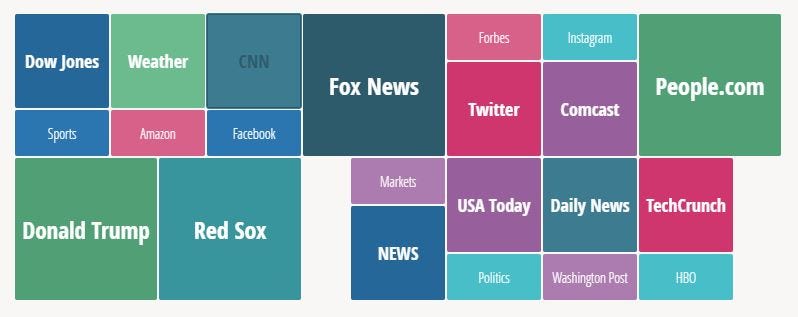Which Search Engine Is Best For Privacy?
Recently the world’s most popular (and powerful) search engine has been in the news a lot. Privacy advocates are criticizing Google heavily over its covert data collection and tracking.
These search engines prioritize privacy to keep your searches and other information private. Unfortunately, most search engines on the internet choose to track as much of your information as they can collect.


Search Encrypt
One of the best ways for keeping information private online and elsewhere is encryption. Search Encrypt uses end-to-end encryption to keep your searches hidden and in encrypted form.
Read More ?
This is another article I wrote about Search Encrypt’s private search engine. I tried using only Search Encrypt for a week, and here’s what I thought.
Search Encrypt’s encryption goes beyond just HTTPS (SSL encryption). It uses an expiring encryption key on your search terms. This means that when you’re done searching your search terms essentially disappear.
In the past year, this private search engine has added many new features which helps move it up on this list. Many private search engines offer a “Web” search that just returns a list of links to websites that match your search term. Search Encrypt adds images, videos, news and maps searches — all with privacy-friendly results.


DuckDuckGo
DuckDuckGo is without a doubt the private search engine with the largest user base. It processes over 25 million queries per day.
“You deserve privacy. Companies are making money off of your private information online without your consent.” Source: About DuckDuckGo
DuckDuckGo’s search engine is less about protecting the privacy of your search terms and more about minimizing online tracking. DuckDuckGo doesn’t track your search terms and prevents third-parties and ad networks from tracking your searches.
According to its About page, DuckDuckGo’s mission is “to set a new standard of trust online.”
Read More ?
I wrote this article awhile ago about a minor issue I found with DuckDuckGo. I think it’s a good private search engine, but there are simply better ones.


StartPage
StartPage calls itself “the world’s most private search engine.” It says it gives you the best of two worlds: Google search results and complete privacy protection. This claim is probably a bit far-fetched. No search engine can offer “complete” privacy protection, because once you leave the search engine you are back at the liberties of the sites you visit.
However, StartPage is still a great option for searching with privacy protection. If you’re used to Google’s results, but don’t want the tracking — StartPage has the same results but keeps Google from tracking you.
“No IP addresses are stored, no personal data is gathered or passed on to third parties, and no identifying cookies are placed on your browser. StartPage also offers secure SSL encryption, a proxy option that allows anonymous web surfing, full third-party certification, and numerous other privacy features.”
StartPage began as Ixquick and became the first privacy-focused search engine in 2006. Now, Startpage sees about 4.5 million searches per day.


Swisscows
Swisscows is a private search engine that is family friendly, doesn’t track you, and doesn’t store any data. Unlike some of the other private search engines, which can get a reputation for being “porn search engines”, Swisscows filters adult searches and websites.
Swisscows calls itself an “answer engine” rather than a search engine. It uses “intelligent data cloud” technology to return search results faster.
Swisscows has a cool feature on its homepage that helps you quickly find popular searches and websites.


Hulbee, the company that owns Swisscows, recently released a search product for businesses. It’s called Hulbee Enterprise Search. It offers the same security and privacy as Swisscows, but uses artificial intelligence to help you locate documents and other information.


SearX
Searx calls itself “a privacy-respecting, hackable metasearch engine”. It aggregates results from other search engines without storing your information. All queries are made with a POST request (unless you use Chrome). Therefore your searches don’t show up in Searx’s logs or in your browsing history.
Another unique feature of Searx is that it lets anyone run their own instance. This feature is a cool way of decentralizing the search market and giving people more control.


Qwant
Qwant is a French search engine. As such it is governed by the European privacy law GDPR (General Data Privacy Regulation). This regulation puts users in control of their data and how it’s used.
According to Qwant:
“What you are doing with Qwant is your business and yours only. To protect your privacy, Qwant makes every effort to ensure the security and confidentiality of its users’ personal data.”
Qwant also anonymizes searches by dissociating them from your IP address. In addition to being a private search engine, Qwant offers some unique, and useful, search features. Searx’s code is 100% open, which is another feature that garners trust, especially from privacy professionals.


Ecosia
Ecosia is a search engine that donates a portion of its profits to plant trees. It calls itself “the search engine that plants trees”. According to Ecosia’s privacy page, it doesn’t “store your searches”, “sell your data to advertisers” or “use external tracking tools”.
We remove parts of the IP address when we store it so they become anonymous. For example 192.168.152.223 becomes 192.168.XXX.XXX
We do not use unique event fingerprinting
We send all data collected from Ecosia services over an SSL-secured connection
We store all analytics data in an highly encrypted database
We only keep fully anonymised search data after 7 days
Ecosia’s features and privacy measures are similar to most of the other search engines on this list. It sets itself apart with its commitment to the environment and planting trees.
